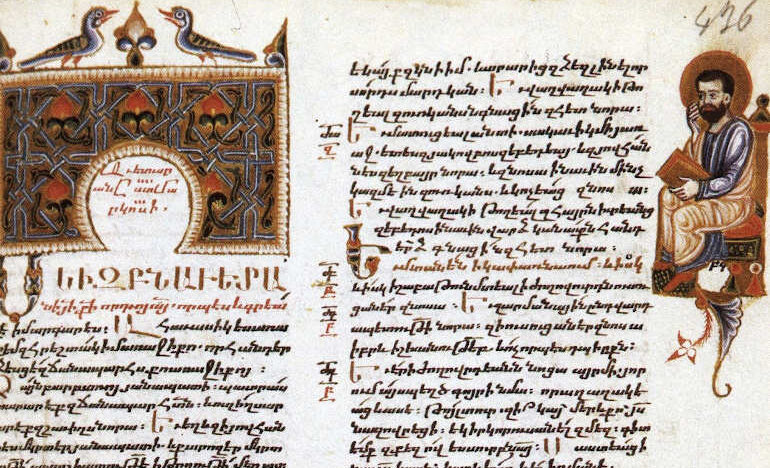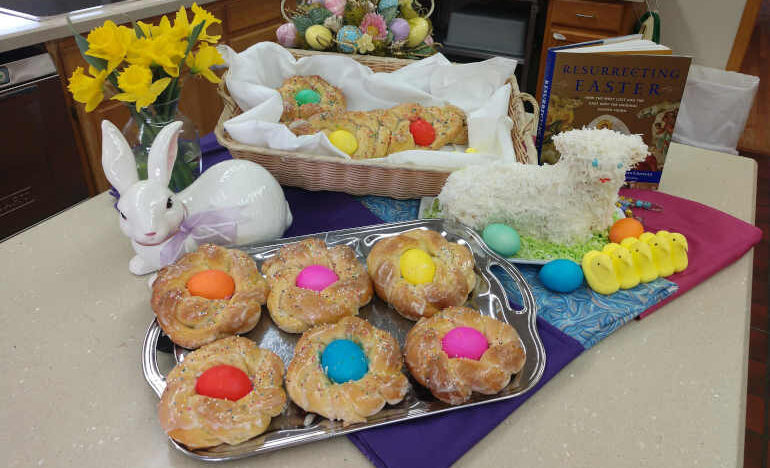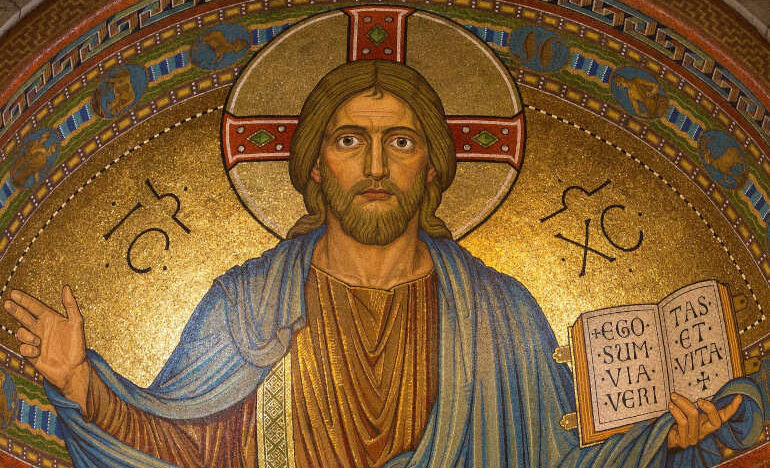The Gospel of Mark: ‘Who do you say that I am?’

By Fr. Ron Will
Part 1 of 4. Read all the articles here.
During the week before Ash Wednesday, I will offer a virtual two-hour mini-retreat using the Gospel of St. Mark to answer the question Jesus asked of his disciples and asks of you personally: “Who do you say that I am?”
Not only have we begun a new calendar year, but with the First Sunday of Advent, we also began a new liturgical year. During this new liturgical year, the Sunday Gospels will primarily be from the Gospel according to Mark.
Fr. Ron’s mini-retreat with Mark’s Gospel will be on the evening of Feb. 9 and the morning of Feb. 13. Learn more and register here.
Mark’s was the first of the four Gospels written. Mark was writing for a community filled with anxiety. Nearly 40 years had passed since the resurrection and ascension of Jesus, but he had not yet returned as the Christian community had expected. Jerusalem was under siege by the Romans, and the persecution of Christians in Rome itself was intensifying after the great fire of 64 A.D. Peter and Paul had died, and only a few eyewitnesses to Jesus’ ministry were left. Christians had told and re-told the stories about Jesus’ ministry, death, and resurrection over the years, but they began to feel the need for a written instruction.
It was in these years that Mark wrote his Gospel. It is likely that he wrote for his suffering community in the neighborhoods of Rome. His main concern was to record the basic facts and stay faithful to the tradition. Mark wrote with a flair for the dramatic and a rich theological sense.
Suffering had thrown Mark’s community into a spiritual crisis. The crisis came not because of weak faith, but through a strong faith too focused on the privileges and glory of being the community of the resurrection: Being disciples meant enjoying the benefits of Jesus’ victory.
As a counterweight to this, Mark refocused on Jesus’ death as the foundation of discipleship.
Mark’s primary themes of the Kingdom of God, the identity of Jesus, and the call to discipleship each undergo dramatic development in this Gospel in light of the Cross. For Mark, everything, even Jesus’ glorious return, stands in the shadow of his Crucifixion.
In the Gospel according to Mark, there are at least seven examples of times that Jesus heals someone or expels a demon, then says “Don’t tell anyone.” Scripture scholars refer to these as the “Messianic Secret.” The Jewish people had in mind the definition of what the Messiah would do when he finally came. Jesus’ definition of the Messiah’s mission, however, is very different. Jesus doesn’t want people to build up false expectations about what he himself would eventually do.
Note: Never miss an article published on the Renewal Center website: Sign up to receive our newsletters
During our Mini-Retreat with Mark in preparation for Lent, we will look at those examples and discover who is the “real Jesus.” If Jesus kept the Messianic Secret during his time on earth, he no longer wants it to be kept a secret now. He wants you and me to know him deeply, personally, and intimately.
Jesus asks his disciples, and also asks each of us, “Who do you say that I am?”
The Mini-Retreat with Mark will help you answer that question. Of all the people that Jesus encounters during this Gospel narrative, it is a person we would least expect that finally recognizes who Jesus really is.
Information about how to register for the Mini-Retreat is on the Renewal Center website now. Click on the following links to learn more. It will be offered on Tuesday, February 9, 6:30 to 8:30 p.m. central time and offered again on Saturday, February 13, 10 a.m. to noon central time.
[Fr. Ron Will, a Precious Blood priest and spiritual director, is a graduate of Catholic Theological Union and Creighton University’s School of Christian Spirituality. He has a special interest in helping form intentional disciples of Jesus, encouraging others to go spiritually deep-sea diving to explore a deeper relationship with God, and walking with people as they dive into the ocean of God’s mystery actually experiencing God rather than simply dipping one’s toe into the water.]
Image above is First page of the Gospel of Mark from a 14th-century Armenian illuminated manuscript painting by Sargis Pitsak.
We’d Like to Hear From You!
We’d like to know what you think about this article. Send us a comment using the form below. Do you have a suggestion? Is there something you want to learn more about? Send us a note.
Related

Easter Bread (Pane di Pasqua)
By Lucia Ferrara
Easter bread is a fun bread. It’s a fun bread to make with your children, with your family, with neighbors and friends. The tradition of Easter bread dates back centuries and comes from many parts of the world.

Easter Sunday, the Resurrection of the Lord
Today’s scriptures tell us how three days changed the world. How have they changed you?
Categories
Assembling God's Puzzle Coffee with Padre Cooking & Spirituality Encounters of the 4th Kind Family Matters Reflections on the Eucharsitic Prayers Spiritual Resources Taize Prayers The Contemplative Life Traveling with Pilgrims of Hope Uncategorized Videos Week of Prayer for Uhristian Unity When you need a little help
